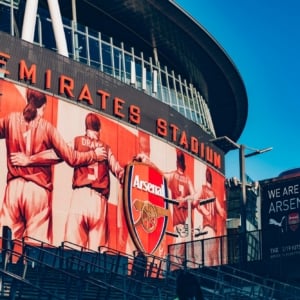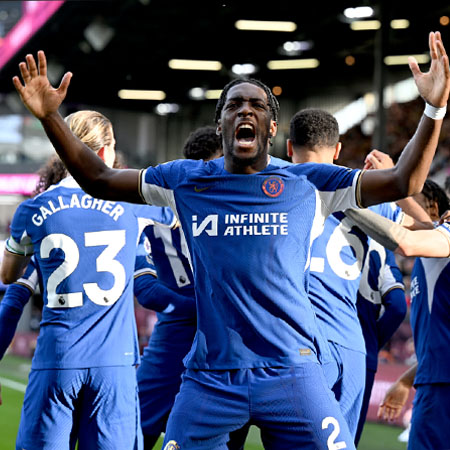Champions League
📖 Origins & Early Years (1955–1992)
-
1955 – The competition was created as the European Champion Clubs’ Cup (often called the European Cup). It was inspired by the French sports newspaper L’Équipe and championed by Gabriel Hanot.
-
Format – Originally a straight knockout tournament, only open to the league champions of European nations.
-
First Winners (1956) – Real Madrid, who went on to dominate the early years.
-
Real Madrid’s dominance – Won the first five consecutive titles (1956–1960).
-
1960 Final – Real Madrid 7–3 Eintracht Frankfurt in Glasgow — still considered one of the greatest finals ever.
-
Other Early Dynasties
-
Benfica (Eusébio-led) – winners in 1961, 1962.
-
AC Milan (1963, 1969).
-
Inter Milan (1964, 1965).
-
Celtic (1967) – first British winners, nicknamed the Lisbon Lions.
-
Manchester United (1968) – led by Sir Matt Busby, first English winners.
-
Ajax (1971–1973) and Bayern Munich (1974–1976) – three consecutive wins each.
-
Liverpool (1977, 1978, 1981, 1984) and Nottingham Forest (1979, 1980) led an English golden era.
-
Aston Villa also won in 1982.
-
-
Tragedies & Scandals
-
Heysel Disaster (1985) – 39 fans died before the final between Liverpool and Juventus. As a result, English clubs were banned from European competition for five years.
-
1986–1990 – Steaua Bucharest, Porto, PSV, and Red Star Belgrade all won as surprise champions during this period.
-
AC Milan under Arrigo Sacchi and Fabio Capello then dominated (1989, 1990, 1994).
-
🌍 The Champions League Era (1992–Present)
In 1992, UEFA rebranded the European Cup as the UEFA Champions League (UCL).
-
Key Changes:
-
Introduction of a group stage.
-
Later expansion to allow multiple teams per nation, not just champions.
-
Commercial boom with broadcasting, sponsorship, and the famous Champions League anthem.
-
1990s Highlights
-
1992/93 – First official Champions League season, won by Marseille (the only French club ever to win).
-
1994 – AC Milan destroyed Barcelona 4–0 in the final.
-
1995 – Ajax’s young team (Van der Sar, Davids, Seedorf, Kluivert) triumphed.
-
1996 – Juventus won.
-
1997–1999 – Borussia Dortmund (1997), Real Madrid (1998), and Manchester United (1999) — United’s win being a legendary comeback against Bayern Munich.
2000s Dynasties
-
Real Madrid’s “Galácticos” – Won in 2000 and 2002 (Zidane’s famous volley).
-
Valencia – Lost back-to-back finals (2000, 2001).
-
AC Milan – Won in 2003 and 2007, but lost the unforgettable 2005 final to Liverpool (the Istanbul Miracle).
-
Barcelona under Ronaldinho & later Guardiola – Titles in 2006, 2009, 2011 (tiki-taka dominance).
-
Manchester United – Won in 2008, beating Chelsea in Moscow on penalties.
2010s Superclubs Era
-
Inter Milan (2010) – Mourinho’s treble.
-
Barcelona (2011, 2015) – Messi, Xavi, Iniesta golden generation.
-
Chelsea (2012) – Shock win in Munich, Drogba’s penalty.
-
Real Madrid (2014, 2016–2018) – Zidane’s side won a historic three in a row (the first in the modern era).
-
Bayern Munich (2013, 2020) – German dominance, including the 2020 “COVID tournament” held in Lisbon.
2020s
-
Chelsea (2021) – Beat Manchester City in Porto.
-
Real Madrid (2022) – Record-extending 14th title, with Ancelotti as coach.
-
Manchester City (2023) – Finally won their first Champions League, completing the treble under Pep Guardiola.
-
2024 – [I’ll need to check the latest winner if you’d like the update].
🏆 Records & Statistics
-
Most Titles – Real Madrid (14).
-
Other Multiple Winners – AC Milan (7), Bayern Munich (6), Liverpool (6), Barcelona (5).
-
All-time top scorer – Cristiano Ronaldo.
-
Other icons – Lionel Messi, Raúl, Paolo Maldini, Iker Casillas, Karim Benzema.
🌐 Legacy & Impact
-
The Champions League is now more than a competition: it’s a global sporting spectacle with unmatched prestige and commercial power.
-
Its anthem, “Zadok the Priest”-inspired, is iconic.
-
Winning the UCL often defines the careers of players and managers.
- Display 30 Products per page





